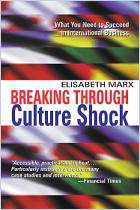Rejoignez getAbstract pour lire le résumé !

Rejoignez getAbstract pour lire le résumé !
Sapna Welsh and Caroline Kersten
Worldly Women
The New Leadership Profile; How to Expatriate With Excellence
iUniverse, 2013
Aperçu
Pack your bags! The time has never been better for women to take international assignments.
Recommendation
Increased globalization, a worldwide talent shortage and a general acknowledgment of the need to develop more female executives combine to create new opportunities for women pursuing international leadership roles. “Your time is now,” say international HR professionals and authors Sapna Welsh and Caroline Kersten. Not only is the glass ceiling breaking, international “glass borders” are showing some cracks as well. Basing their global leadership model for women on in-depth interviews with 62 “Women in Senior-level Expatriate Roles” (WiSERs), Welsh and Kersten identify the barriers to expatriate assignments and offer strategies for succeeding in overseas jobs. Although the authors’ persistent reliance on statistics makes for occasionally tedious reading, they include enough in-her-own-words case studies to hold your interest. getAbstract recommends their advice to professional women who are considering an expatriate assignment or are about to leap into one. Bon voyage.
Summary
About the Authors
Sapna Welsh and Caroline Kersten, founder of Kersten HR Consulting, are co-partners in Leverage HR, LLC, an international career coaching and counseling firm.




















Comment on this summary